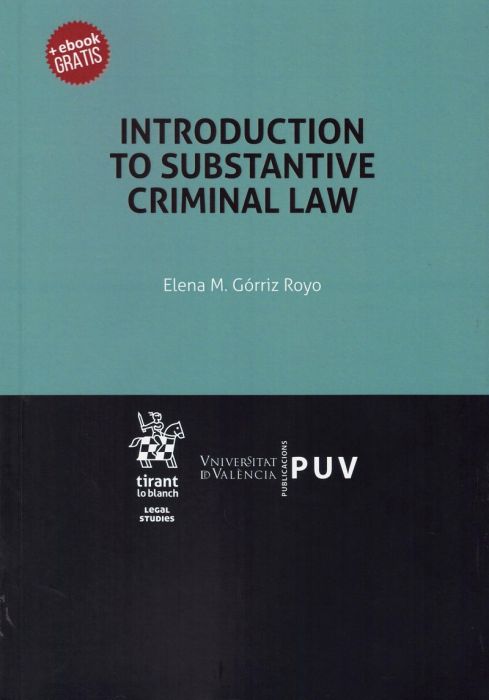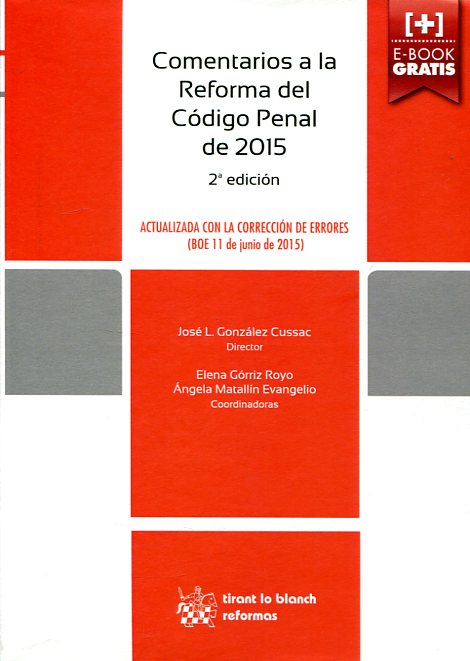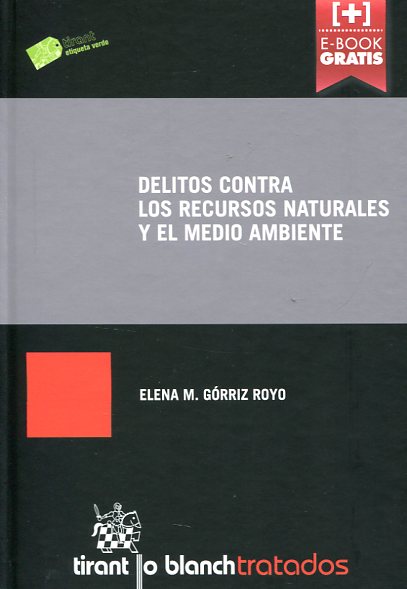Introduction to substantive Criminal Law
- ISBN: 9788413363837
- Editorial: Editorial Tirant lo Blanch
- Fecha de la edición: 2019
- Lugar de la edición: Valencia. España
- Colección: Legal Studies
- Encuadernación: Rústica
- Medidas: 22 cm
- Nº Pág.: 177
- Idiomas: Español

Focused on the principles of Criminal Law and a general approach to the theory of crime, this book facilitates to provide an introduction to the main institutions of Spanish Criminal Law. Comparisons are made in particular aspects, with similar ones of the Common Law system.
This book however does not attempt to present an encyclopedic overview of the substantive Criminal law, as its key purpose is to present a comprehensive analysis of main penal principles of the so-called general part, encompassing a selection of the essential institutions of the traditional theory of crime such as action, omission, causation, wrongdoing, defences/permissions, excuses, principals and accomplices or iter criminis. The idea of this book emerged from a modern deeper approach to the substantive Criminal Law in Spain, which is the Òmeaningful conception of action, to enhance a deeper understanding of particular institutions.
All Spanish-language institutions have been translated into English, due to the fact that this book is, also, about a comparative analysis of some institutions. In this respect, readers are exposed to approaches to familiar problems in both Civil and Common Law jurisdictions, detailing critical opinion about doctrines and theories of substantive Criminal Law.
ÍNDICE
Part One. GENERAL ASPECTS AND PENAL PRINCIPLES OF CRIMINAL LAW
Chapter 1. Concept of criminal law
Chapter 2. The legality principle
Chapter 3. Proportionality principle and the harm principle
Chapter 4. Ne bis in idem
Chapter 5. The principle of presumption of innocence
Part Two. BASIC INSTITUTIONS OF CRIMINAL LAW THE CRIME AS AN ACTION
Chapter 6. Concept of crime
Chapter 7. Requirement of a human action
Chapter 8. Types of conduct
Chapter 9. Action, causation and attribution
Chapter 10. The definition of crime
Chapter 11. The wrongdoing
Chapter 12. Exclusion of wrongdoing (I)
Chapter 13. Exclusion of wrongdoing (II)
Chapter 14. Exclusion of wrongdoing (III)
Part Three. PERPETRATION OF THE CRIME
Chapter 15. Iter criminis
Chapter 16. Offenders: perpetrator and accomplice
Part Four. Crime as blameworthiness
Chapter 17. Culpability (I)
Chapter 18. Culpability (II): the capacity for culpability (accountability)
Chapter 19. Culpability (III): knowledge of wrongfulness and mistake about prohibition
Coeditado con la Universitat de Valencia.









